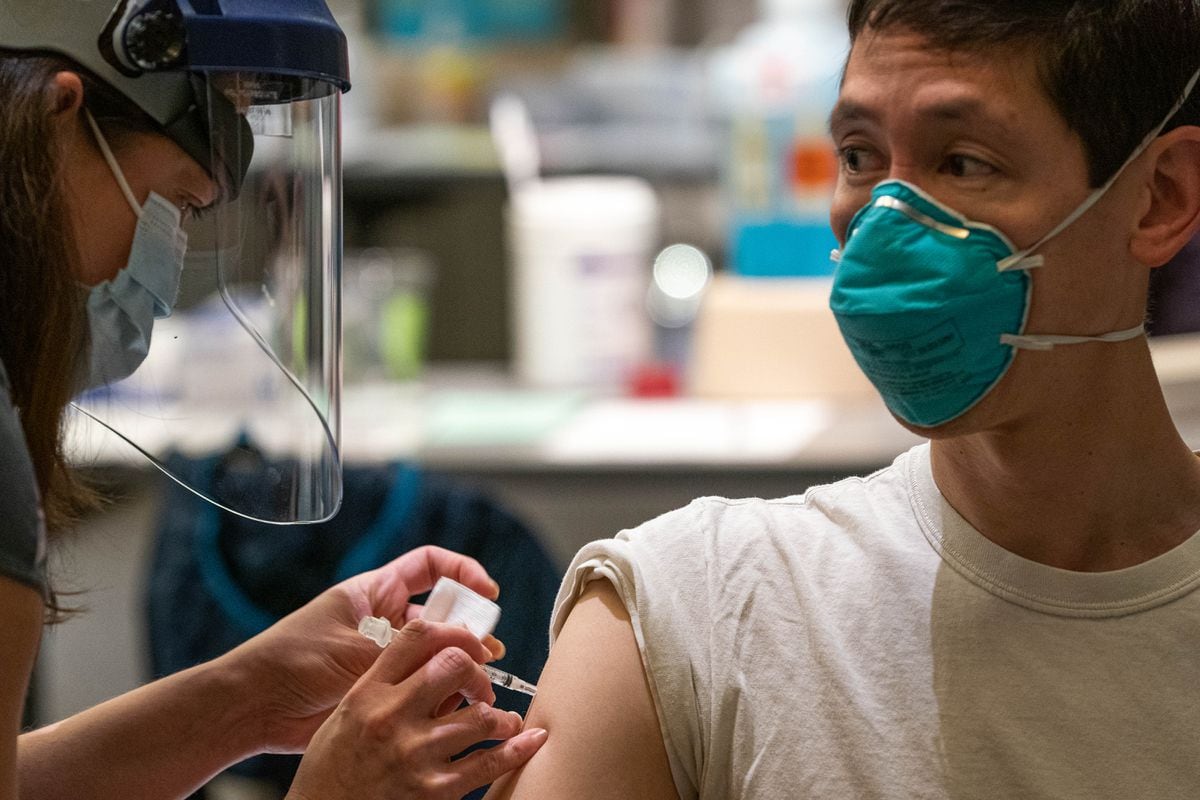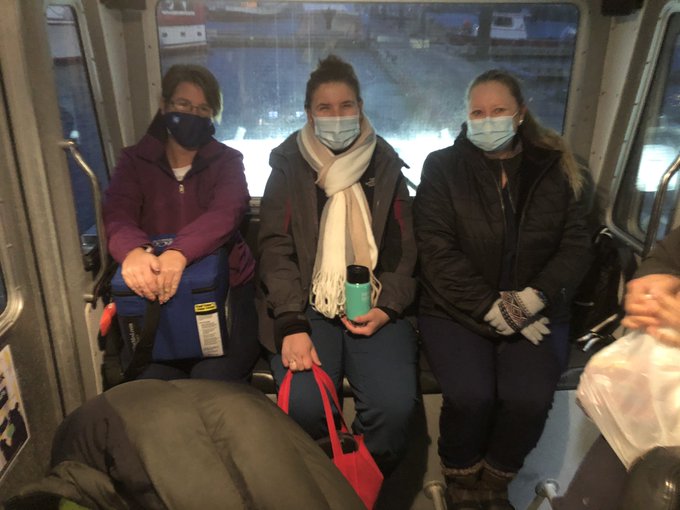Alaska, A Vaccine Delivery Success Story
"Boats, ferries, planes, snowmobiles -- Alaskans will find a way to get it there.""I love the pictures of vaccination distribution in Alaska. Recipients expressed how grateful they were that even though they are so remote, they are getting this vaccine. They are not forgotten.""The stories have lived on. One chief told me how his grandmother took his mother out to the wilderness for a year so that she would be safe. When they returned, they learned that most of their village had died [during the 1918 flu pandemic].""We are stronger as a state because of that history. For me, the way that villages were able to recover from that trauma speaks to what we need to do to keep moving forward."Anne Zink, Alaska chief medical officer"We land in the isolated tundra, and they'll be lined up waiting [the native residents].""If you turn around the last two seats in the plane, it works out perfectly [the plane interior to be used as an inoculation site when inclement weather prevails].""Some places have up to 30 people, and some have only one."Ellen Hodges, physician from Bethel, Alaska"You have to be resilient and self-sufficient to live in Alaska. We have a lot of multi-family households, so we're extremely grateful to see these vaccines arrive.""People here look out for each other."Crystal Collier, president, CEO, Seldovia Village Tribe
 |
| Plastic surgeon Daniel Suver receives the Pfizer-BioNtech COVID-19 vaccine from Andrea Castelblanco during a vaccine clinic on Wednesday, Dec. 16, 2020 at Providence Alaska Medical Center in Anchorage. (Loren Holmes / ADN) |
When Curt Jackson who hires himself and his 32-foot aluminum landing craft as a water taxi to convey people across the bay from the small city of Homer to villages across Kachemak Bay where no roads make the remote villages accessible by land was asked to take three nurses to Seldovia, a 450-person town, because of bad weather keeping planes out of the air that morning, he agreed despite that the trip would be in unusually rough water conditions.
It was dark when the trip began. One of the women among the three was carrying a bright blue cooler. Which led Jackson to comprehend that the women were on a mission to deliver vaccine doses. "I asked them, 'Is that the vaccine'? and they told me it was", he said of the nurses tasked to vaccinate a group of medical workers in the village. The 15-mile trip to cross the bay was extended to an hour though it normally takes 30 minutes, as a result of strong winds and four-foot waves that early morning.
 |
| Curt Jackson, Captain of Water Taxi, the Orca |
"With a strict time frame (for the Pfizer vaccine), there was no option for us to postpone vaccinations."
"On any other day, the rough ride would not have been as nerve-wracking if (the) vaccine hadn't been involved", said Candace Kreger, a licensed nurse care coordinator from Homer, Alaska.
 |
Sarah Lind, a nurse with Yukon-Kuskokwim Health Corp., Southwest Alaska's tribal health care provider, vaccinates James Evan in December. They're standing on the tarmac in the village of Napakiak, where Evan works for YKHC at the clinic. Yukon-Kuskokwim Health Corp. |
As far as Dr.Hodges from Bethel was concerned, the coronavirus
vaccination effort is the most important project she has ever been
involved with.She had flown to several villages in a six-seater plane for the purpose of vaccinating medical workers and elders. Medical crews frequently upgrade to ten-seater planes when the weather is particularly icy, the larger planes enabling the interior to be used to inoculate people inside the plane, protected from the elements. The sensitivity of the state in its creative approach to delivering the vaccine by resorting to planes, sleds and snowmobiles impresses tribal elders.
Alaska is leading the U.S. in per capita vaccinations with about 13 percent of the state having been inoculated while another high-delivery state, West Virginia, has inoculated 11 percent of its population. For Alaska the challenge is how to manage to convey vaccines to people living in difficult, frigid terrain, awkward to access in remote corners of the state. Where people end up being inoculated on fishing boats, inside 10-seater planes, and frozen landing strips -- with medical personnel taking parlous trips to towns and villages to serve the health of remote-dwelling Alaskans.
The population of the state with the nation's largest land mass is 732,000 with a large number of veterans at high risk for infection, along with native populations whose vulnerability to infection is also high. This is a state well practised in delivering cargo by transport unusual in nature, even by sled. An all-female medical crew of four had used a sled hauled by snowmobile to deliver vaccine to the village of Shungnak in the remote Northwest Arctic Borough.
Labels: Alaska, Delivery, Inoculation, Novel Coronavirus
0 Comments:
Post a Comment
<< Home